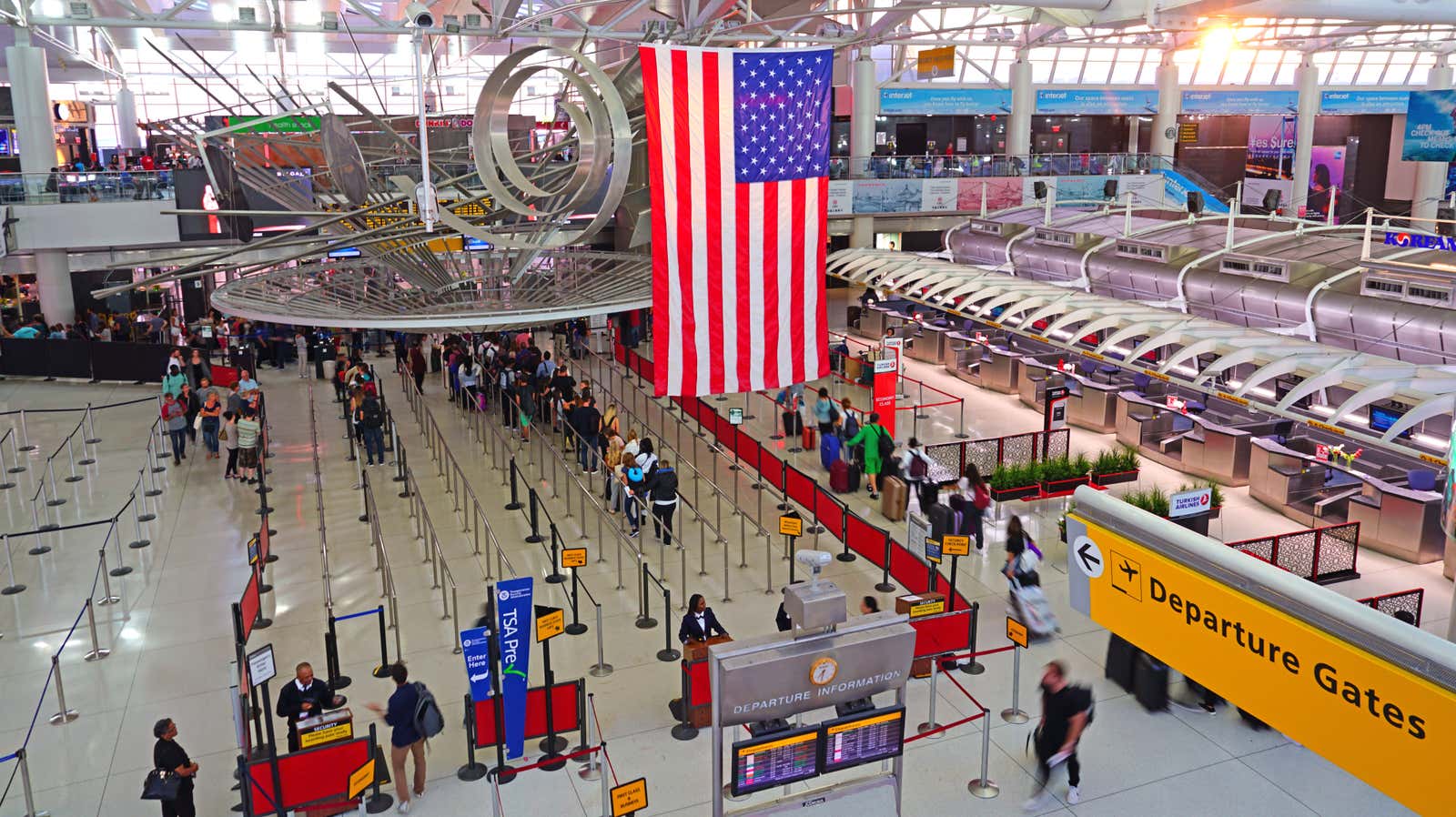New COVID Screening Rules for US Passengers

Almost six months ago, back in mid-March, the Trump administration issued an order banning travel from Europe, Brazil, Iran and China. There was an exception to this rule: US citizens, legal permanent residents and their family members were allowed to re-enter the country if they flew into one of 15 designated US airports and underwent enhanced entry security. But on Monday, September 7, that policy changed, according to Yahoo News . Here’s what you need to know about the updated travel rules.
What has changed in the COVID screening policy?
In short, those with a US re-entry permit will no longer need to fly through one of these 15 check- in airports en route to their final destination:
- Boston Logan International Airport (BOS), Massachusetts
- Chicago O’Hare International Airport (ORD), Illinois
- Dallas / Fort Worth International Airport (DFW), Texas
- Detroit Metropolitan Airport (DTW), Michigan
- Daniel K. Inoue International Airport (HNL), Hawaii
- Fort Lauderdale Hollywood International Airport (FLL), Florida
- George W. Bush Intercontinental Airport (IAH), Texas
- Atlanta Hartsfield-Jackson International Airport (ATL), Georgia
- John F. Kennedy International Airport (JFK), New York
- Los Angeles International Airport, (LAX), California
- Miami International Airport (MIA), Florida
- Newark Liberty International Airport (EWR), New Jersey
- San Francisco International Airport (SFO), California
- Seattle-Tacoma International Airport (SEA), Washington
- Washington Dulles International Airport (IAD), Virginia
When the new policy goes into effect at 12:01 pm on Monday, September 14, it will remove mandatory COVID screening for passengers arriving from outside the country.
What does this mean for public health?
Great question – after all, we are still in the midst of a global pandemic. Let’s remember the policies that have been in place over the past few months. Essentially, passengers returning to the United States were sent to specialists at airports, who took their temperatures and asked a series of health-related questions, including whether they were experiencing any of the classic symptoms of COVID-19.
Part of the verification process requires travelers to provide their contact information if necessary for contact tracing. But under the updated policy, if a passenger could potentially have contact with someone with COVID-19, it would make it much more difficult (or at least take longer) to contact them.
While the new policy is likely to make travel more convenient for those flying overseas, it doesn’t seem like the best move from a public health standpoint. At this point, we’re not really in a place where we can afford to make contact tracing more difficult. And while not everyone with COVID has a fever (and vice versa), airport medical examinations have at least provided some attempt to help slow the spread of the new coronavirus and acknowledge the ongoing global pandemic.